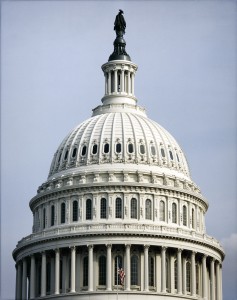 Rep. Darrell Issa, Chairman of the House Committee on Oversight and Government Reform, has announced a January 18 hearing to “examine the potential impact of Domain Name Service (DNS) and search engine blocking on American cyber-security, jobs and the Internet community. In light of policy proposals affecting the way taxpayers access the Internet, the hearing will also explore federal government strategies to protect American intellectual property without adversely affecting economic growth. The Committee will hear testimony from top cyber-security experts and technology job creators.”
Rep. Darrell Issa, Chairman of the House Committee on Oversight and Government Reform, has announced a January 18 hearing to “examine the potential impact of Domain Name Service (DNS) and search engine blocking on American cyber-security, jobs and the Internet community. In light of policy proposals affecting the way taxpayers access the Internet, the hearing will also explore federal government strategies to protect American intellectual property without adversely affecting economic growth. The Committee will hear testimony from top cyber-security experts and technology job creators.”
During last month’s markup the Stop Online Piracy Act (SOPA) in the House Judiciary Committee, various Members objected to the fact that no security experts had been brought in to testify on the bill’s impact on internet security. Reps. Issa, Lofgren, Polis, Waters, Lungren, Johnson, Sensenbrenner and Chaffetz all voiced concerns over the issue. Issa said that he worried the legislation was being rushed through the committee without ample input from scientists, and that the Committee would be wiser to take additional time to develop better legislation addressing online piracy. Multiple warnings from security experts were cited throughout last month’s markup, including
- Open Letter from 83 Internet Engineers to the Members of the House Judiciary Committee, December 15, 2011.
- Letter from Vint Cerf to the Members of the House Judiciary Committee, December 14, 2011.
- Stewart Baker. Op-ed in The Hill (reposted on theconstitutional.org). “Finding Fault With the Stop Online Piracy Act. November 19, 2011.
The witness list posted by the committee is:
- Mr. Stewart Baker: Partner, Steptoe & Johnson LLP
- Mr. Brad Burnham: Partner, Union Square Ventures
- Mr. Daniel Kaminsky: Security Researcher and Fortune 500 Advisor
- Mr. Michael Macleod-Ball: Chief of Staff/First Amendment Counsel, American Civil Liberties Union
- Mr. Lanham Napier: Chief Executive Officer, Rackspace Hosting
- Dr. Leonard Napolitano: Director, Center for Computer Sciences & Information Technology Sandia National Laboratories
- Mr. Alexis Ohanian: Co-Founder, Reddit.com, and Web Entrepreneur
Kaminski is quoted in Forbes saying he will tell the Committee that “there are security implications to the work you’re doing that we know you didn’t expect, but are counter to the national security interests of the USA. No one intended to break anything [with this bill.] They intended to address a legitimate economic concern. But thanks to the law of unintended consequences, their efforts in DNS filtering run counter to our efforts in DNS authentication.”




